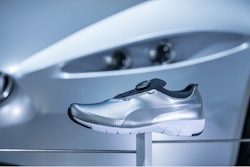Self-Contained Artificial Photosynthesis
Solar cells and wind turbines are the technologies many people think of for off-grid electricity production. But practical artificial photosynthesis to create hydrogen via solar-powered water splitting could radically alter the way we produce energy locally. Researchers at the Institute of Energy and Climate Research in Jülich, Germany claim to have created a working artificial photosynthesis system that could lead to practical commercial devices.
This new system, like most artificial photosynthesis devices, combines a solar cell and an electrolyzer to capture solar energy in order to split water into hydrogen. This is a technique employed since the 1970s, and since then, most research has concentrated on increasing efficiency by developing new absorber materials and catalysts. The Jülich system, however, brings material and experimental knowledge together to produce a practical working unit.
According to the researchers, natural photosynthesis conversion of sunlight to energy tops out at only about 1 percent while other artificial systems top out at about 3 percent, so the conversion efficiency of solar input to hydrogen production in this new prototype coming in at around 3.9 percent could be considered high in comparison but, in practical terms, really isn't.
Given more efficient solar cell materials, the researchers believe that the conversion effectiveness could reach up to 14 percent.
SO, WHAT DO YOU THINK?
Could this system be relatively easy and practical to commercialize? Tell us what you think by leaving your comments below.
Venturri Sets New World Land Speed Record for an Electric Vehicle
In 2010, Venturri Automobiles set the world land speed record in an electric streamliner when it hit an incredible 307.7 mph. Well, on Monday, the EV automaker (with a little help from Ohio State University) bested itself when their VBB-3 reached a stunning 341.4 mph.
Despite clinching a new world record speed for an electric vehicle, the team said that the track was subpar which led to some vehicle instability. Still, Venturri’s VBB-3 is now not only the world’s most powerful EV with 3,000 hp but also the fastest. The VBB-3 team says their ultimate goal is reach 400 mph, a lofty goal for any land speeder but an exceptionally difficult one for an EV.
SO, WHAT DO YOU THINK?
Do you think Venturri’s VBB-3 has the power and speed to join the exclusive 400-mph club? Leave us comments in the section below.





















